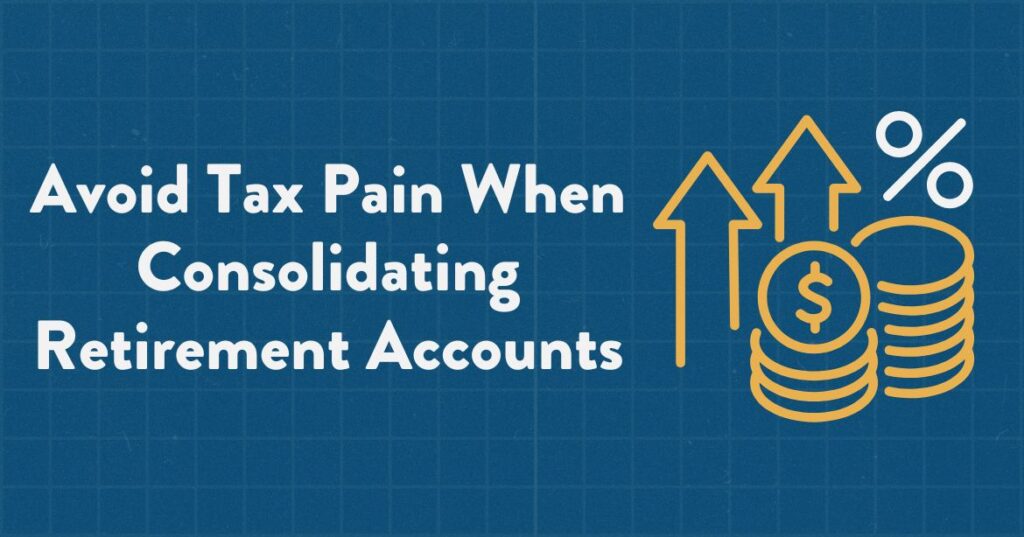If you’re like many people nearing retirement, you may have retirement savings scattered across multiple 401(k)s and IRAs from previous jobs. While consolidating these accounts can provide benefits, it’s important to do so carefully to avoid triggering major tax consequences.
Before jumping into specifics, it’s important to note that there are four options to look at when you have accounts from previous jobs. Each option has its own advantages and disadvantages. These options are:
- Leave the money in his/her former employer’s plan, if permitted
- Roll over the assets to his/her new employer’s plan, if one is available and rollovers are permitted
- Roll over to an IRA
- Cash out the account value
The key when consolidating is to focus on trustee-to-trustee transfers rather than cashing out the accounts. Cashing out a 401(k) or IRA before age 59 1/2 can result in paying ordinary income taxes on the withdrawal plus a 10% early withdrawal penalty. That can eat up a significant portion of your hard-earned savings.
Instead, you’ll want to roll over the funds into a single IRA account. This is called a trustee-to-trustee transfer and does not create a taxable event. Your savings remain tax-deferred and you maintain control over the investment choices.
Another option is to roll the funds into your current employer’s 401(k) plan, if that plan allows such transfers. This also avoids taxes and penalties.
By consolidating your accounts into an IRA, you’ll gain more investment flexibility. 401(k) plans typically offer a limited menu of investment options, while an IRA gives you access to a much broader universe of investments to diversify and align with your goals.
An added benefit of consolidation is simplifying your retirement income planning. When it’s time to start taking required minimum distributions (RMDs) after age 72, you’ll only have to deal with one account rather than coordinating multiple RMDs from scattered accounts.
The process of retirement account consolidation can seem daunting, but working with a financial advisor can make it straightforward. They can guide you through the logistics, ensure the transfers are executed properly, and help you develop an overall retirement income strategy.
Don’t let a tangled web of retirement accounts complicate your transition into retirement. By consolidating thoughtfully, you can streamline your finances and avoid costly tax mistakes.
Want more information? Join us for a free workshop — How to Reduce Taxes in Retirement — on November 19 at 6:30pm at the Chittum Event Venue in Hot Springs. The event is free and food will be provided, but registration is required.
The opinions voiced in this material are for general information only and are not intended to provide specific advice or recommendations for any individual.





